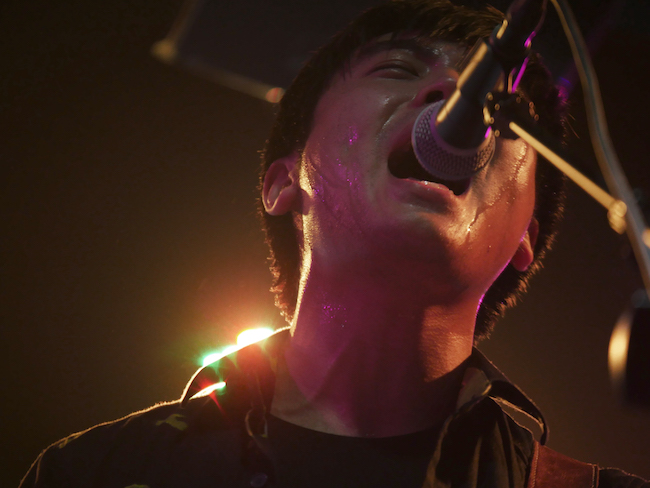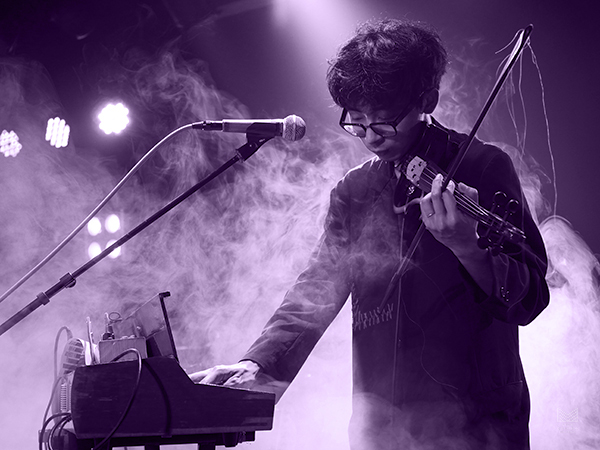Will Griffith of Livebeijingmusic.com is perhaps the country’s best rock and roll expert. His interview with Asia Art Tours can be found below.
For those interested our ROCK AND ROLL IN THE PRC TOUR will soon be available.
Come to China with Asia Art Tours and meet Will, some of Beijing’s most cutting-edge musicians, and other counter-culture figures of China who are fighting to define their generation.
1.What led you to Beijing’s Music Scene? What’s led to it becoming your main interest?

To be honest, I kind of fell into this all – the scene, the website, everything – by accident. In an attempt in impress on a first date, I took a girl to LAN Club, which is basically the most ridiculous and outlandish nightspot I can think of here in Beijing. I heard that Holy Ghost! of DFA records was playing there, so I figured between that and décor out of Alice and Wonderland, I was sure I could get a goodnight kiss. Little did I know that there was a opening act, by some band named Pet Conspiracy. Five minutes later, I was ready to ditch my date and run away with the lead singer, Helen Feng, and the music coming out of those speakers. My mind was literally blown. I didn’t even bother staying for Holy Ghost!
From then on, I slowly immersed myself in the music the capital had to offer. I had started seeking out anything music-related, and found myself brining out my camera each time out. Filming for the sake of filming. A good friend of mine at the time, began ragging on me to put up the videos I had been taking. So we sat down one evening and developed the idea of starting a music blog — a way to “show” rather than “tell” what exactly the music scene here had to offer.
We bought a domain name, shopped around for help, learned the ways of WordPress, and by the time we were ready, my buddy was shipped off to Guizhou to work on the railways, essentially leaving me with a site with zero content. So, it was either let the site wither away or get blogging. My cheap nature won out in the end, and I began posting. Since then the site has gone through many versions, has morphed into something bigger, and has been in many ways one of the main reasons why I’ve decided to stay in Beijing.

2. How does the Beijing Scene compare to the rest of China? What trends are you seeing on the horizon?
What can I say about the scene in Beijing – its bustling, it’s dynamic, it’s crippled, it’s complicated, it’s diverse. Yeah, it’s a big city and we have lots of livehouses and lots of bands taking a stab at trying to make something out of music. Which isn’t for sure – as most bands still work full time jobs elsewhere. Labels get gobbled up everyday by bigger companies, streaming services reign supreme (xiami.com/netease), and making a dime off of a release is pretty much impossible – festival dates are where it’s at.
While Beijing has been the centre of the music scene for years, and probably has the healthiest infrastructure of all the cities, it still does have the disadvantage of being the political center of China which makes the scene at times uncertain — mainly in the lifeline of venues, who come and go due to increasing rent or just plain ol’ government intervention. Beijing proper hasnt had a festival in over three years, but alas it’s really not all that bad. One venue bites the dust, two more pop up.
Nevertheless, with other cities in China catching up to Beijing in terms of development we are seeing many more scenes pop up elsewhere and its pretty thrilling to watch – Chengdu, Xi’an, Hangzhou, Wuhan, Shenzhen, Guangzhou, and even smaller places. Bands are more comfortable setting up shop in these more affordable places and building a scene from the ground up which is great in the long run.
As far as the music goes, trends are changing all the time. The hip hop scene exploded last year and you can’t go a weekend without a blow out hip hop event in the city. Electronic music has been making leaps and bounds and is attracting world wide attention. Lo-fi pop makers – shoegaze and other slacker rockers – are bridging the scenes across Asia. There’s quite a bit happening at once and it’ll be fascinating to see what sticks in the coming years and more importantly what gets propped up both local and international audiences.

3. How does Contemporary Beijing Music (rock and roll, metal) connect to China’s musical past?
Well not too much as you can guess. Rock and roll, a Western music form in many ways, wasn’t introduced to China until the 1980s after China opened up its doors to the rest of the world. It was new, it was foreign, and just a bit dangerous. Chinese rock (yáo gǔn 摇滚) which is often inaccurately described as a style of music which combines Chinese musical instruments with techniques of Western-style rock and roll, was more about attitude and lifestyle – ‘Chinese music with modern orchestration’. That was the generation then.
Today bands and artists of the past decade have been exposed to all forms of music all at once, and a lot of what they’re soaking in isn’t traditional Chinese music, but instead decades upon decades of music from around the world, dug up in their childhood via bootlegs CDs and eventually the internet.
Bands still do look back to the past for inspiration, whether it be in the rhythmic sections or the vocal intonation. Just look at the rise of metal bands who have wisely popularised on the pagan metal genre by injecting the music of their ancestors in hard hitting riffs – i.e. Inner Mongolian metal bands performing here and aboard. The lines between rock and roll, yaogun, and contemporary music are never straight.

4. How impactful is censorship in curtailing artistic freedom in China? Is this a fine line or are artists given a great deal of freedom?
Censorship is certainly still a sore subject in China, though not as much as Western journalistic would like it to be. It’s a grey area, and as long as musicians aren’t upfront about their intentions and their lyrics aren’t bluntly referencing politics or anything sensitive it’s fair game. The more famous, popular, and mainstream your band is the more likely you’ve get in trouble. Every so often a widely popular rapper will have to apologise for some unsavoury remarks or lyrics in their latest track. However, it really doesn’t have too much effect on musicians here in China, who have countless ways to express themselves through their music. Add on top of that the increase in citizens being able to voice their opinions in public with the rampart rise of social media, censorship is taking on new more subtler forms, a la the West.

5. What’s your personal favorite album(s) of 2017? Do you have an all time favorite?
Too many to choose from – http://www.thebeijinger.com/blog/2017/12/22/2017-year-review-25-albums-wormed-our-eardrums. But I’d definitely seek out Re-TROS’s Before The Applause, as well as Hai Qing’s The Flesh, and Howie Lee’s Homeless – nice spectrum of sounds there. As for all time favourite – you’re really asking for too much. Though would love to give a shoutout to Hedgehog’s Blue Daydreaming and Second Hand Rose’s Stealing The Show.
6. Lastly, what was the best show you’ve seen in Beijing? Why?
Best show! You’re killing me here! Just this past year I’ve been to over a hundred shows. A lot of my favourite shows revolve around seeing or discovering a band for the first time. For instance, the first time I caught indie rock outfit Residence A (one of my first times filming) or when I was introduced to the bombast of synth pop giants New Pants in a warehouse (I recall a iMac desktop getting the guitar smash treatment). There were also bittersweet farewells like when Zhang Shouwang (of Carsick Cars) and Yan Yulong (of Chui Wan) gave a touching rendition of ‘Invisible Love’ at the closing of renowned D-22 club. Most recently, I got bit weepy at a Wang Wen concert cause I couldn’t handle the majesty of the Dalian post rock stalwart’s music.

(Feature image of Will Griffith by Laurent Hou. Last Photo by 69)
Contact Asia Art Tours today for more information. We are creative travel for creative people.
For more on Will and his amazing work in Beijing, please head to his website: Livebeijingmusic.com
